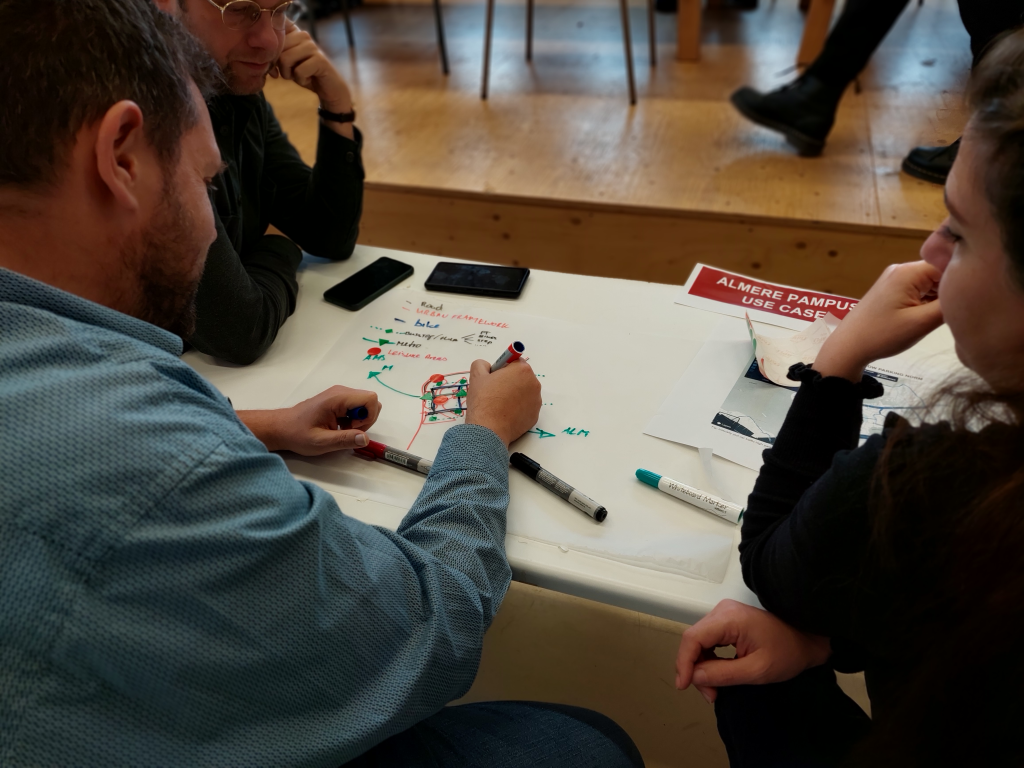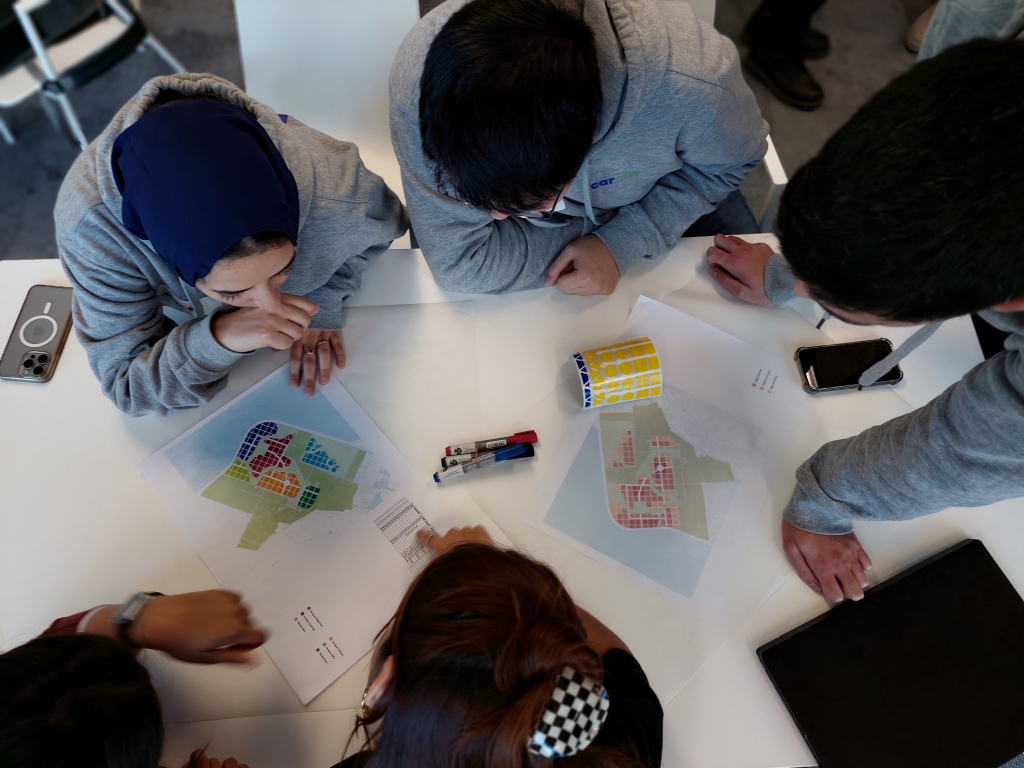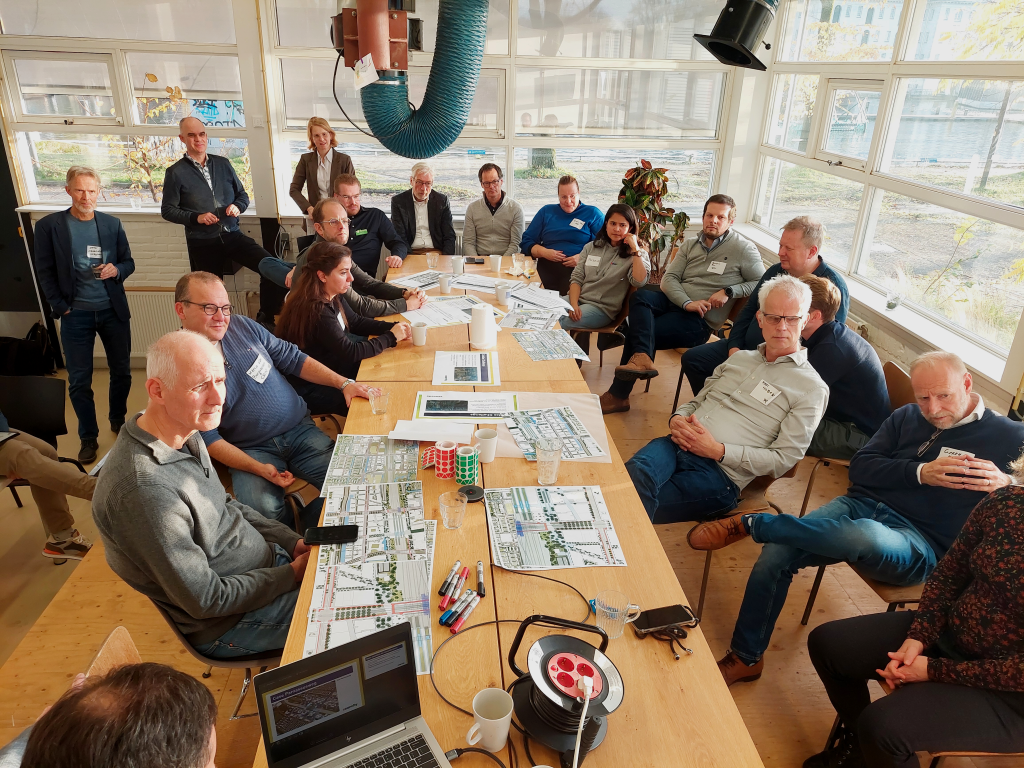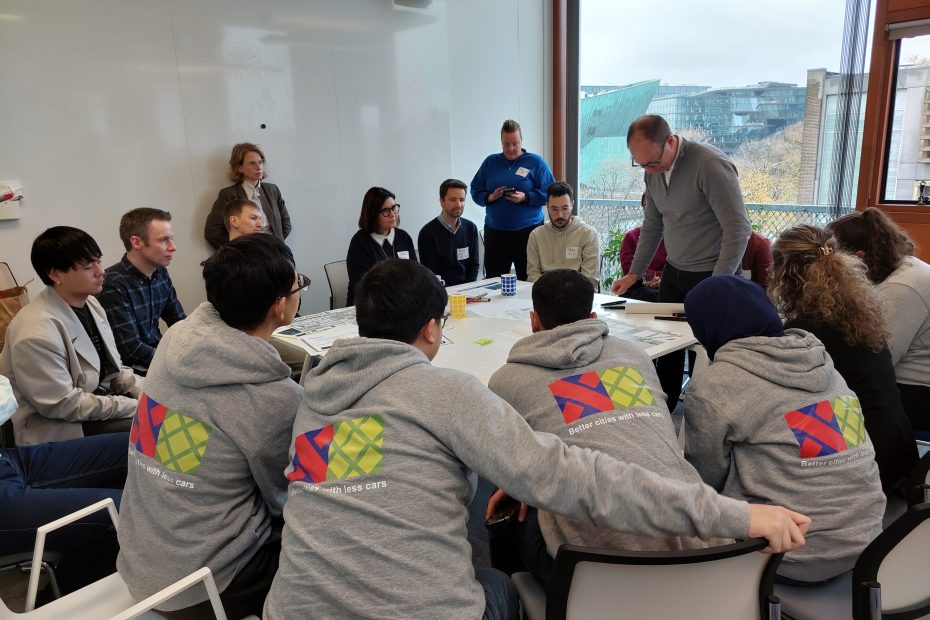On November 19th, 2024, we hosted our second annual design session at AMS Institute, a pivotal event aimed at advancing digital twins in supporting solutions for car low neighbourhoods. The session brought a wide variety of XCARCITY consortium members including Governments, Mobility Service providers, IT and Traffic Management Organisations, Consultants and Universities. The session had a core focus on collaborate design across indicators and digital twins.
Around 50 attendees were welcomed by Tom Kuipers, who kick started the day with a great presentation on AMS Institute.
Thereafter, the Host Maaike Snelder from TNO and TU Delft provided an explanation of the day’s agenda including details of the steps taken post the design session.
The day started with a great presentation by Arjan van Binsbergen on the research being conducted through WP 7: Research by Designs. The results from surveys with consortium partners were presented. Arjan set the scene for the first interactive session of the day, which focused on Key Performance Indictors for the different use cases.
The Annual Design session focused on two of the four use cases for the programme: Almere Pampus and Amsterdam Zuidas. The attendees were asked to split into two groups and dive into the indicators for each use case. Participants were handed a detail spreadsheet for each use case and asked to support on either identifying relevant indicators, for the Amsterdam Zuidas Case, or rating the identified indicators for the Almere Case. A lot of robust and insightful conversations took place, with partners engaging with researchers and everyone getting to know the case and one another a little better.
After a delicious lunch and networking session, the afternoon kicked off with two great presentations, on digital twins and tooling. Jingjun Lee (Postdoc from TU Delft) presented his work from the XCARCITY Programme which is focusing on a federated set of digital Twins, while Canamnie Ponnambalam, from TNO, presented the demo tool that has been created through work package 3, focusing on scenarios and decision making.
After this the Design Sessions began. Participants were able to join both the Amsterdam and Almere design sessions over a two-hour rotation. The sessions focused on the use of digital twins and how these could support each use case in designing and decision making. Almere utilised the TNO digital twin to show how different parking capacities impact the mobility system while Amsterdam focused on determining what digital twin/s would be useful to support with decisioning better spaces for pedestrians and cyclist in Zuidas. A big thank you to the Almere and Amsterdam teams, that provided insight into their use cases and real-life experiences.
After a successful afternoon, the session was closed with some borrel and reflections by Bart van Arem. The Day presented another successful XCARCITY event, full of collaboration and insightful discussions. WE look forward to seeing the results of the day being translated into action.
Look for an overview of the day in pictures underneath.






